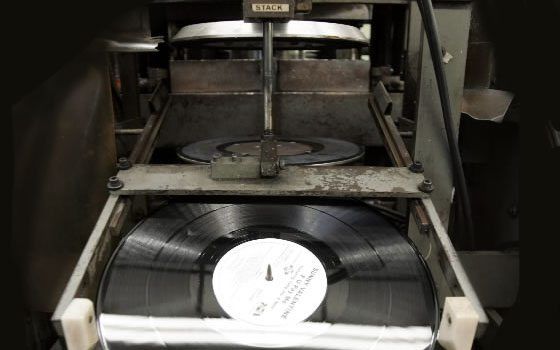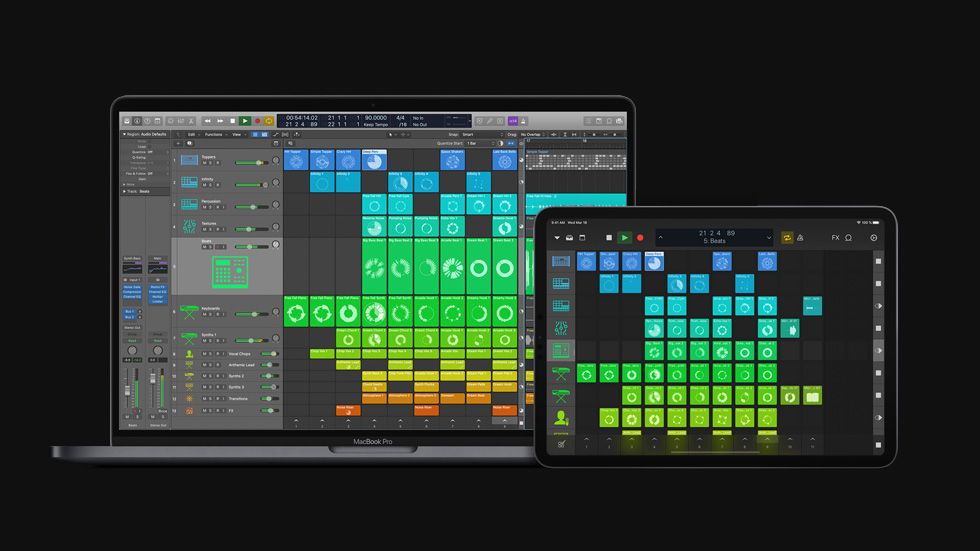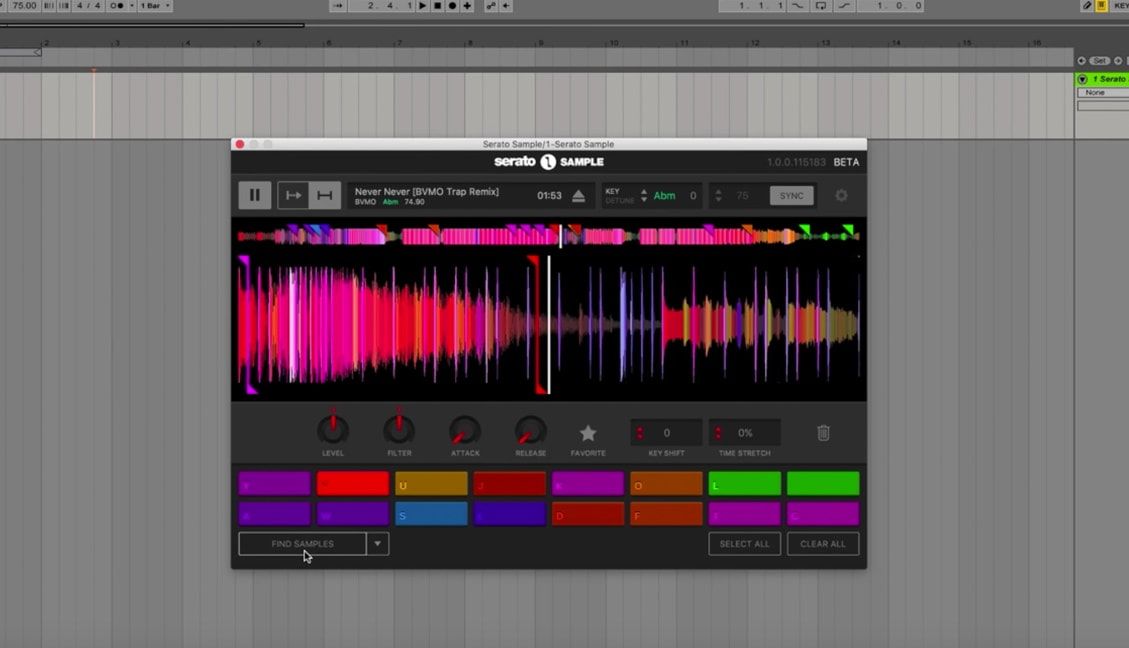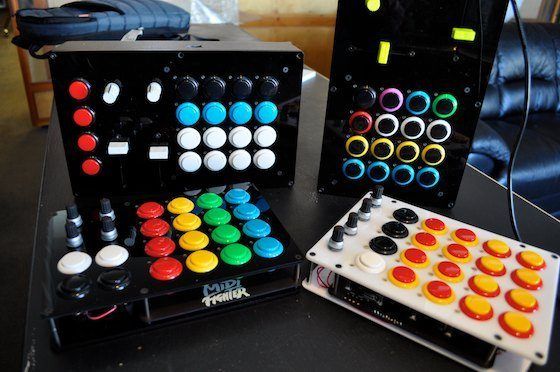As music creation tools become more accessible and powerful it has never been easier to make great records without emptying your wallet. You may not realize it, but as a DJ, you already have a production-oriented mind. All you need to do is acquaint yourself with the right tools to get the music in your head on paper. So get pumped– you’ll be throwing original songs into your DJ set before you know it!
Before we jump into specific production tutorials, I want to get you thinking about what kind of music you really want to create. With this focus in mind you’ll be able to take it in the direction YOU want.
WHO ARE YOU?
You may already have an idea of the sound you’re aiming for, and that’s great. But for those who have no idea of the direction you want to go, don’t panic. Here’s a suggestion for narrowing down who you are musically:
1. Get out a pen and paper.
2. Now write down a list of three your favorite artists.
3. Next to each artist draw 2 to 3 lines connecting to your favorite songs from that artist.
4. Next to each of those songs, write why you love the song.
For this part, I suggest actually going back and listening to the songs rather than going from memory– you may find that you hear things you didn’t hear before when you analyze them. Do you love the pumping bass lines? The distorted vocal loop? The four-on-the-floor kick drum? Maybe the barely-audible high-pitched drone in the back of the mix. It doesn’t matter if it’s an instrument, a melody, or even just a fleeting moment; you know what you love about the song.
Here’s mine as an example:
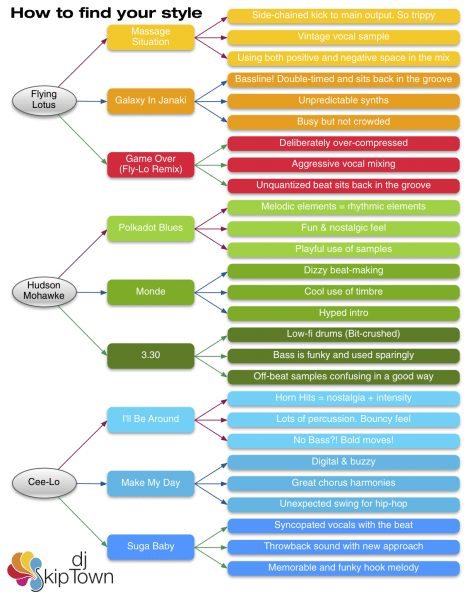
You see the list on the right? That’s your sonic profile. You just musically eHarmonie’d yourself and found your match. These are musical elements that you find beauty in. Your aim should be to filter everything you love about your favorite artists and combine them into one package.
WHAT IS NEXT?
With a computer, the software of your preference, and a MIDI controller, you have a virtual symphony at your fingertips. Now go exploring. No rules or anything. Just explore the software, sounds, processors, and don’t worry about what’s right or not; just do what sounds good to you. Go put a bit crusher on an entire drum kit. I don’t even care. Go nuts, Trent Reznor.
After you’re done exploring, you can start adding some structure to your music. Here’s your first assignment:
1. Take your favorite song, import it into an audio track,
2. Using virtual instruments, do your best to recreate the drum part.
3. Try to match the drum sounds as best you can
This is a good exercise not only in beat recognition, but also how to pick out sounds and samples that work well. It’s also the first step in figuring out what kind of music you want to craft. Don’t worry if it’s tough at first, step-by-step tutorial videos are on their way.
A note from Ean:
Just the other day I sat with one of our employees over lunch and explained how the Dj industry has dramatically changed in the 15 years I have been involved. Back then, with mix CD’s and mix tapes as the dominant medium, Dj’s like Paul Oakenfeld and Carl Cox were not known for their productions but for their mixes. As we all know, this is no longer the case. Famous producers like DeadMau5 are the defacto dj super-stars and massive dance tracks seem to be the only road to stardom. Since our mission has always been, and continues to be, making our readers the best that you can be, we will start including articles on the topic of producing great dance tracks in Logic and other software.If you have any specific problems or questions post them in the comments!
CONTINUE READING


